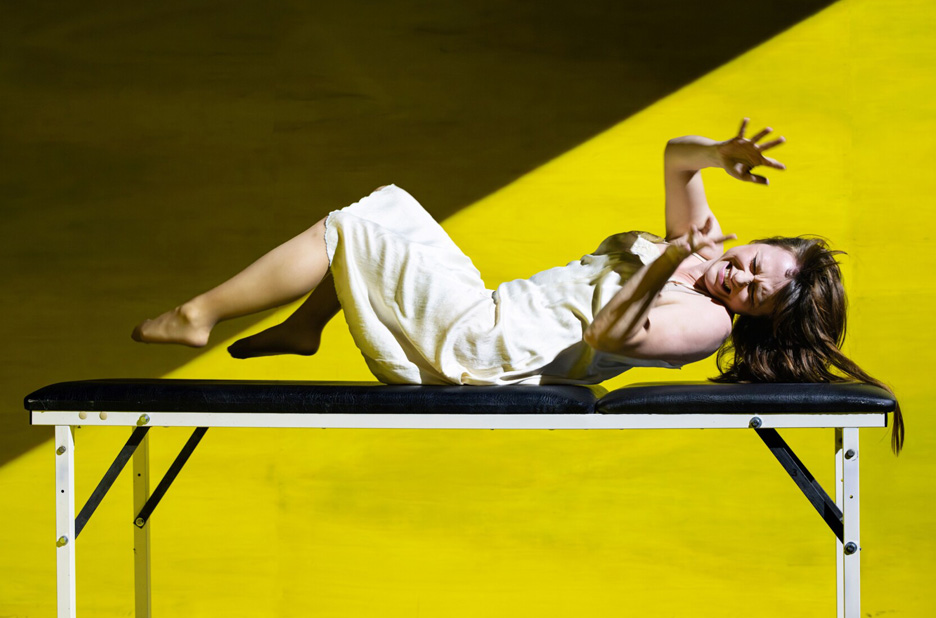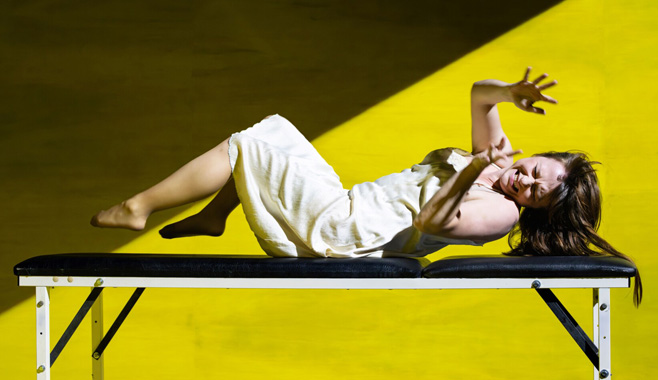Theatre
Machinal
The Old Vic, London
2/5
Disappointing on trend interpretation
What has happened to the Old Vic since Kevin Spacey? No more rich corporate sponsorship? No more Hollywood elegance? No more slick professional standards? I understand we had the Covid pandemic which ruined the performance industry. Still. I hope things starts improving again. Even their website looks awful now with the oversized bold retro fonts and messy layout.


In 1994 I saw Fiona Shaw and Kieran Hinds in Stephen Daldry’s Machinal. What a staging that was. And acting masterclass. Thirty years later the emphasis is on mental illness, on a constant forte and endless restlessness, on lack of subtlety and nuance. Interestingly, feminist readings are not encouraged here, which is a strange or should I say glaring omission. How could this play be anything other than feminist?
It is hard to imagine how the main character played by Rose Sheehy is attractive to the two male losers when she constantly behaves as if she is in mental asylum. Fiona Shaw’s character was passive and vulnerable in a way that would be plausibly attractive to male predators. Kieran Hinds was masterfully menacingly manipulative and dismissive as the lover. Pierro Niel Mee plays it as a weak lowlife with no personality. The whole scene between lovers is strange with the lights turning off and gradually on as if there is something that benefits from being hidden when they are in fact just having a really banal conversation.
For some reason the dress is a 1950s hodgepodge rather than 1920s. The American accents vary in quality and detract. In the hospital the doctors and nurses look at a particular spot on the floor when talking to the woman in a very clumsy attempt to show that nobody is really looking at her. Every single critic assumes that the woman is suffering from post-partum depression when she doesn’t want to see her child. As if this is some kind of badge of honour for male critics to show that they know what post-partum depression is. There is nothing to suggest this is the case in the text. In fact it could equally be many other mental ailments or simply that she viscerally hates the husband. The repeated jerking in sync with the drilling on the street is also very ineffective and amateurish.
No identification is possible with Rose Sheehy’s character as she is far too extreme and simplistic. The scene with the mother which is the first key to her mental state is too weak and for some reason Rose Sheehy’s character is presented as the oppressor instead of the other way round. In 1994 Fiona Shaw was mesmerising in this scene armed with the full understanding it deserves.
The husband played by Tim Frances is the only one that convinces. A self-satisfied man who makes the world in his image and is wilfully blind to others. The misogyny of the scenes with the husband could not be hidden. The initial office scene also works fairly well, but it is one of the strongest parts in the play and hard to mess up. Imprisoning the woman in the cage at the end is also done very clumsily, surely this should be easy to pull off well. There is no development of the character’s mental state as clearly shown in the play and previous productions. Very immature. I guess it suits the times.